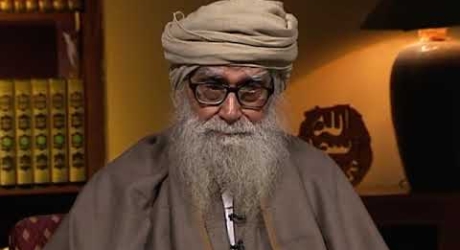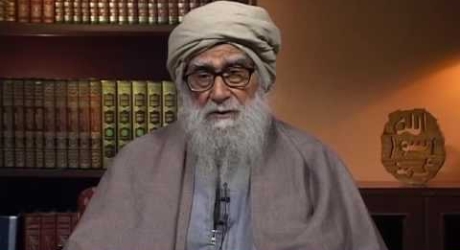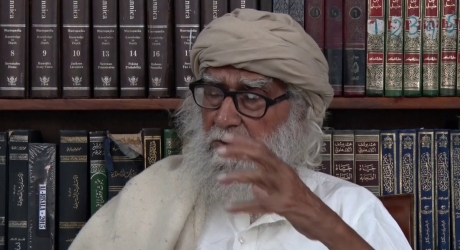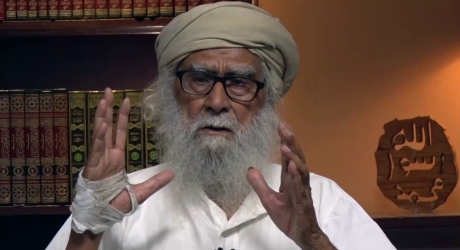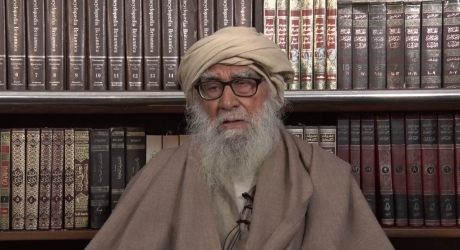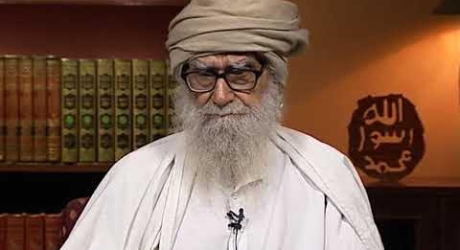Dawah is an obligatory duty of the believers. What is meant by dawah is to convey the message of God to those who are still unaware of it. It should be made clear here that the work a Muslim or a da‘ee does among the Muslims is not dawah but it is called islah. However, this type of work is also of divine nature though not dawah work. In dawah we call those to God who are still unaware of the creation plan of God; those who are still leading a purposeless life. Now a question arises as to how we can convey this message of God to the non-Muslims. Those who work on islah can easily find the people they want in the mosques, the religious schools and other gatherings the Muslims hold on different occasions. But those who desire to perform dawah work that is, those who want to show the non Muslims the divine path cannot find their desired people in the mosques or in the religious schools of the Muslims or in their gatherings. They can find them only in their own gatherings and celebrations. The only solution to this requirement of dawah is that a da‘ee should perform this duty of dawah work on personal basis where it is possible for him otherwise, he should go to the gatherings of non-Muslims and do dawah work there to the extent of his capacity. But this is not a simple matter. It requires great patience and perseverance. The non-Muslims cannot organize their gatherings on the conditions of a da‘ee rather they will organize them according to their own customs and traditions. In this situation, to make use of these gatherings is possible for a da‘ee only if he adopts the Islamic principle of i‘rad or avoidance mentioned in the Quran (7:199). That is, on such occasions, meeting those who have a mature outlook towards life and telling them about Islam avoiding those things related to their own culture or religion. He has to show respects to others’ religions also so that the conditions remain favourable for him. It is difficult to perform dawah work in strange relations. Patience and avoidance is a must for performing dawah work. Without patience and avoidance performing dawah work in an effective way is almost impossible. The whole life of the Prophet is a practical example of this wisdom of dawah work.
Introduction
I would like to begin by citing the following Hadith tradition
Allah ne sab se zyada aalaa cheez jo paida hi wo hai, wisdom (Baihaqi)
Wisdom is the most supreme creation of Cond.
The most superior creation of God is wisdom and we must recognise its significance in leading our lives rightfully. This world has countless stems variety of plants, animals, planetary bodies and water bodies - but no one other than man can build something now. Only man does so by applying wisdom
I was thinking today that it was always known that world has three things-matter, plants and animals but wisdom created a fourth dimension-moving matter. From cars, airplanes, mobiles - everything is a form of moving matter. Wisdom gave movement to matter and converted three-dimensional world into four-dimensional world. No other creation galaxy, mountain or solar system According to a Hindi proverb can do this
Sadharan gunon se asadharan manushya bante hain
Ordinary qualities lead to extraordinary men
In other words, when an ordinary person applies wisdom, he becomes extraordinary.
A dayee (one who addresses) must bear in mind that dawah work cannot be done without wisdom. Dawah work makes a madu (addressee), a superman. This is because a dayee's job is to convey the message of God to the madu to help him attain God-realization. It is this message which provides the formula to become a superman. Dawah work is not a fun-filled activity, it is the art of applying wisdom.
Present-day Muslims raise much hue and cry on account of disrespect for the Prophet Muhammad. The so-called protests and riots which take place on this pretext are absolutely contrary to the spirit of Islam and the life of Prophet Muhammad. During his life, Prophet faced instances of far greater intensity but he never retaliated. What the present-day Muslims refer to as disrespect of Prophet is nothing compared to what the Prophet underwent.
Instances from the life of Prophet Muhammad
Let me narrate some instances from the life of the Prophet which illustrate the contempt he faced during the course of his mission. Once a person came to meet Prophet Muhammad and when he returned to his tribe, he said to them that a "false" Prophet has been born in Mecca and an "ordinary" person (son of Quhafa) is helping him (Ibn Hisham). This was an act of disrespect towards the Prophet and his Companion
Prophet's name was Muhammad (praiseworthy) but to humiliate him, his opponents in Mecca used is call him Muzammam (condemned person) (Ibn Hisham). According to traditions, Prophet's opponents used to propagate that Quran is nothing but a collection of Biblical verses and there has been no angel who descended on Muhammad. (Quran, 25:5)
In another instance, when Prophet sent a letter to the Iranian King, he tore it apart saying, "He (Prophet Muhammad) is my servant. How dare he write a letter to me!" (Bukhari) Traditions abound on how his opponents hurled stones at the Prophet and injured him while he was on foot, returning from Taif (Ibn Hisham). Similarly, during the Battle of Uhud, the Prophet was hit by a stone and his tooth broke. (Ibn Hisham)
A study of historical records will show that instances of disrespect were far more grave but Prophet Muhammad applied wisdom and converted the negative propaganda into positive and made it into a dawah opportunity. Though negative, the propaganda led to publicity and made people curious to know about Prophet Muhammad. The Companions became "mukris" and wherever they found men. they used to recite the Quran. If print media would have existed then, the news would have been, ‘in an environment of disrespect, peaceful dawah work continues.’
It is in comparison that we understand and we realise that a far greater humiliating condition existed in Arab but Prophet managed it and converted negative into positive. He converted the minus into plus and used the opportunity to spread the word of God. This is the difference between being wise and unwise. We must realise that everything in this world can be successfully done by application of wisdom.
Cave of present-day Muslims
Present-day Muslims fail to realise that man can pursue any opportunity on this world with wisdom alone As per Jewish tradition, Prophet Moses prayed to God, “O God Please take away anything from my people, but their wisdom. God replied, “O Moses! When we have to take away something from a people, we take away their wisdom!”
This tradition explains the case of present-day Muslims Instead of converting the negative propaganda into an opportunity of doing dawah work. Muslims indulged in riots and killings, everywhere. For example, Kashmiri Muslims caused constant disturbances and violence to retaliate against the stationing of the Indian army in Kashmir. Sixty years elapsed and nothing constructive could be achieved in Kashmir. Contrary to this, when Tartars entered into the Muslim Empires and took all control, Muslims were forced to do dawah work Tartars were a barbaric tribe and were strong that it was made popular that they cannot be defeated. But within fifty years of dawah efforts, majority of Tartars embraced Islam. There is a stark difference between these two instances to India people hurled stones and undertook violence for sixty years nothing positive happened and a lakh of Kashmiris died. Whereas during the Tartar invasion, Muslims were forced to present the Quran through which they gave Islam a whole new strength.
Let me take another parallel. After this Battle. Prophet Muhammad and Companions emerged victorious and seventy prisoners of war from the opposing party were captured. At that time, Mecca was the centre of learning whereas Medina were basically agricultural, In lieu of setting the prisoners free, Prophet Muhammad demanded that each of them teaches ten children of the Ansaar (people of Medina). This was how the Prophet used the opportunity and the first school in the history of Islam came into being. A similar situation presented itself before the Arab Muslims when the highly educated Jews came to Palestine. Instead of utilising this opportunity for spreading modern education amongst the Arabs. Muslims engaged in violence. Here, I would like to recount an instance. I visited Israel for a Conference, which saw participation of over a hundred Palestinians. I was surprised to note that many Palestinian boys and girls spoke fluent English. When I tried to enquire where do Palestinian children study English, 1 got to know that they study in the schools of Israel In other words, despite the scale of destruction, those Arabs who children studied in Israel education centres were benefitting. If this wisdom was applied in 1948, an entire generation of educated Arabs could be raised.
These examples explain that situations would never be mouth. It is not in the Plan of God to make it happen Wisdom therefore is in learning the art of managing the situation and not confronting with Here I would want to recount the instance of Adam and Iblis, which has been described in the following verse of the Quran
When your Lord said to the angels. "I am putting Earth (2:30)
Successor (Khalifa) does not mean someone who would establish the rule of God but an entity that possesses freedom of choice. Unlike all other creations that are governed by laws of nature, God granted free will he man and bade the angels to prostrate before them. This act of prostration signified that angels (divine managers of the universe) will not cause any obstruction in the work of the generation of Adam and shall cooperate with them. At this, angels expressed their apprehension to God, which is alluded to in the following verse of the Quran
Will You [God) place someone there who will cause corruption on it and shed blood. (2:30)
Angels were worried to realize that if man has freedom, it will lead to differences and eventually confrontation. To allay their anxiety, God created the entire mankind and presented the exceptions before the angels, after which they were relieved.
I had always thought about this verse of the Quran and I understood it because of an instance that I would like to narrate. It must be mentioned that if you have wisdom, you infer profound principles from insignificant occurrences (tawassum). For example, Issac Newton (d. 1727) pondered over an ordinary event and it led him to uncover the fact that Earth has gravitational pull.
A renowned Iranian scholar and Mufassir (commentator of Quran), Fakhruddin Ar-raazi, has written that during the course of his work he could not understand the meaning of the Chapter Al-Asr. Once when in Baghdad, he noticed a man who was selling ice and calling out to people saying. "Ae logon' Us insaan par rehem karo jis ka sarmaya pighal pighal kar khatm ho raha hai!" (Oh people! Show mercy to a man whose treasure is melting away!) Ar-raazi said that through this he understood the meaning of Al-Asr. He realised that the life of man is a countdown and he is running towards death. He must utilize the few moments of life that are there for him! (Al Tafseer Al Kabeer)
Let me share another instance. Two bicyclists were heading towards each other on the road in front of my house. As they speedily closed in, they lost control and collided. Both fell from their bicycles and following the accident started quarrelling with one another. On another occasion, I witnessed two other bicyclists who applied brakes as they closed in, stuck to the principle of "keep left and moved ahead without any confrontation. This made me understand the meaning of the verse in Surah Baqarah. That when man would be given freedom, there would be some people who would give into differences and start fighting. Others would use wisdom and manage the differences and will make every difference a plus point for themselves.
It is important for a dayee to understand that dawah work is done amidst men who have different interests and ideas so it is imperative that differences will arise. In fact, differences arose even between two Prophets like it happened between Prophet Moses and Prophet Harun. According to the Quran
When Moses returned to his people in anger and great sorrow, he said, 'what an awful sin you have committed in my absence. Did you want to hasten your Lord's command?" He threw down the Tablets and seized his brother by the head, pulling him towards himself. Aaron said, 'son of my mother, the people oppressed me and almost killed me. Do not give my enemies cause to gloat over me. Do not number me among the wrongdoers." (7:150)
When interacting with others, differences are bound to surface. There are two kinds of people - those who manage differences and those who fail to manage differences and fight. If a dayee does not know this art of management, he can never do dawah work.
For example, at the time of Prophet Muhammad several idols were placed inside the Kaaba. Today. even if a loudspeaker is placed next to the mosque, Muslims quarrel. Prophet saw this sight of idols in Kaaba for thirteen years but never confronted the polytheists. Instead, he managed the situation because these idols were a source of inviting pilgrims to Kaaba. Prophet Muhammad used this gathering of dayees as his audience to spread the message of God.
The situation today is more than favourable. Earlier we had to distribute the Quran for free but now people come forward to take Quran themselves. I realised that the change happened because the so called instances of disrespect in-effect aroused curiosity in the minds of people.
When I was in America, a person told me that out of curiosity he asked the keeper of a bookstore in Chicago about the number of Satanic Verses sold on that day. The answer was three He then asked him about the number of Quran that moved in a day and the answer was seventy is was became people had become curious to read what is in the Quran.
These examples illustrate the opportunities that exist, if Madims choose to ignore the problems. The test of wisdom is that in the wake of any event be it a cartoon, video or a book, Muslims perceive as an opportunity to address curious minds. Only those who do not have wisdom will fight in such situations. In other words, there are two types of people
- Victim of situation (perish and make others perish too)
- Master of situation (those who avail the opportunity)
Prophet became master of situation in Mecca. In doing so, he set an example for the believers to emulate. A believer who succumbs to a situation goes against the Sunnah and one who uses the situation in his favour acts in conformance with the Sunnah.
Unfortunately, present-day Muslims create chaos in the name of Prophet but have forgotten his model. People are curious and want to know about Quran. Just as a businessman cannot afford to confront his customer and adheres to the principle of "customer is always right. similarly a dayee must abstain from confronting with his madu under any circumstance. But owing to lack of wisdom and being devoid of Dawah spirit, Muslims engage in violence with the madu.
It must be understood that wisdom is related to every aspect of life, be it societal, national or international. Wisdom guides man to success and if man fails to apply wisdom, he is led to failure. A dayee must strive to become wise so that he is able to do creative dawah work. He who acts unwisely is capable of jeopardising the entire scheme of things
Because of their actions, present-day Muslims are seen as problem creators instead of harbingers of glad tiding. According to traditions, at the time of Companions, when believers had come to Kerala as traders, they were called "Mopilla" (leaders). They had a customer friendly disposition and used to undertake creative dawah work. Because these believers were from the generation closer to Prophet. they knew the importance of wisdom. Today, the situation is opposite. People perceive Muslims as perpetrators of violence and killings.
Therefore being a dayee does not suffice, a believer will have to become a wise dayee. This is important because God has bestowed freedom of choice on man and everyone is free to follow his desires. We cannot curb others' freedom and so negative situations would be there always. A dayee can be successful only if he inculcates high thinking or wisdom and is able to think above the situation that others create for him.
Wisdom is referred to in the Quran as Al-Hikmah. According to the Quran, a prophet gives four things to believers, one of which is wisdom (Al-Hikmah), A simple example of wisdom is that after Mecca came within the fold of Islam, Prophet and a contingent of ten thousand companions started off to Medina. They reached a pass which was Az Zaiqa (narrow passageway). The question was how to cross the narrow way. Prophet asked the horizontally arranged contingent to arrange themselves in vertical formation and this change of approach allowed them to cross the passageway easily.
On another occasion the Prophet of Islam was in the Masjid al-Nabwi in Madinah, the second most sacred mosque in Islam, when a Bedouin, that is, a desert Arab, entered the mosque and urinated inside it. It was obviously a very provocative matter. But the Prophet was not at all provoked. He simply asked the companions to bring a bucket of water and wash the place clean (Fathul Bari, 1/386). This was a case of application of wisdom. If that man would have been beaten-up, his ego (Nafs-c- lawamma) would have assumed dominance and he would have gone back and incited his tribe but when the Prophet left him unpunished, his conscience (Nafs-e-ammara) assumed dominance. This man upon returning to his tribe narrated the sequence of events and how Muhammad remained unprovoked and said nothing. The conscience of the tribal men was moved by Prophet's act and they came to meet the Prophet and find out the state of affairs. They were so moved that gradually the entire tribe embraced Islam. If Prophet would not have followed the policy of wisdom, the entire tribe would have become against him.
Prophet Muhammad's entire life is full of wisdom, from start to beginning. So, the followers of Prophet who want to live by his Sunnah and repeat history will have to discover the Prophetic wisdom and lead life in accordance with it. They would have to leave aside protests and other such acts of violence because this approach kills wisdom. In order to usher a new era, Muslims must leave policy of reaction and violence. They must re-think and apply wisdom. Then, they would become master of situation. I want each one of you to reflect on it, prepare yourself and spread this message to others!
Question - Answers
Q1: Please clarify the essence of the following verse of the Quran
But whoever turns away from My reminder, will lead a straitened existence and on the Day of Judgement We shall raise him up blind. (20:124)
A: In this verse “maishat” does not refer to economic scarcity but psychological deprivation in the Fone of tension, stress and lack of peace within. This is explained in the following verse of the Quran
He (man) was like a dog that pants whether you chase it away or leave it alone. (7:176)
The description of dog in this analogy is taken to explain how a dog pants on good treatment as well as on had. This is the condition of someone who is arrogant. When God blesses him, he becomes arrogant and when He does not bless him, he still remains arrogant. Such a person would not have peace and would not be in a position to remain de-stressed.
Q2: A cleric questioned about the advantage of not reacting and disadvantage of reacting? Please guide
A: Kaaba had several idols and if Prophet would have reacted (the way present-day Muslims react). there would only have been fighting and violence. Prophet instead used this opportunity to do dawah work. He and the companions underwent instances which were million times more humiliating but did not react. Lack of wisdom does not let man see the result of his doings. Present-day Muslims are not able to see things in terms of result and only know their emotions. This is when the Hadith says
Sachcha momin wo hai jo cheezein ko unke result ke aitbaar se dekhe
The situation of idols in Kaaba which was a much bigger issue in comparison to a video or book but Prophet and Companions did not get provoked and did not give into reaction. Instead, they utilised the audience that visited Kaaba to revere their diety, for spreading the message of God. In doing so, they put forth a model for Muslims for such times when provocation is imminent.
Q3. How should we know that we are free of complexes?
A: There cannot be a mathematical answer to this. It is a subject of psychology. A person can identify his biases by thinking, other cannot tell him. If told, man will not be able to understand if he has not introspected himself. Without introspection, man will neither recognise the bias and would neither be able to correct himself.
Q4: How do we attain wisdom?
A: Attaining wisdom is a process, one that man needs to initiate within himself. He studies, introspects, consults others, course corrects and as a result acquires wisdom. Those who understand the importance of wisdom must initiate the process within themselves.
Q5: Emotions are killer of wisdom. How do we control emotions?
A: The basic formula to control emotions is to inculcate the ability to see things in terms of result. Just like two squirrels on a collision course give way so that one can pass, likewise a wise person must develop the ability to manage the situation. Whoever wants to acquire wisdom must invest in developing this ability, it does not develop on its own.
Q6: Does Islam have Mudafat (repulsion) or Jariyat?
A: Islam does not have Jariyat. Even dafa is temporary. The basic mission of Islam is to do peaceful dawah work, which has no scope for violence. Violence is committed by people like Hitler and Stalin. The person who develops his personality on principles of Islam becomes a well-wisher for mankind. He strives to make people aware about the message of God so that they become eligible for paradise. A true believer cannot afford to confront with others since he has to show them the path to paradise.
Also it must be understood that any act of violence is not the prerogative of a common man. It can be undertaken by state alone and that too when this state has been attacked by an outside force. Those who do Jihad (as Qital) and belong to a non-government body will have to be answerable to God for their transgression.
Q7: What does the verse "Go, fight with them" mean?
A: The fighting (qital) mentioned here refers to that which took place during the life of the Prophet Muhammad. The Prophet's Meccan opponents, not content with just expelling the Prophet and his companions from Mecca, their hometown, also prevented them from living and working peacefully in the neighbouring town of Medina where they had gone to settle. Without any provocation, they repeatedly attacked the Muslims who then had to fight in self-defence. When aggression has already been committed by opponents, believers are obliged to defend themselves. Initiating hostilities is not permitted for Muslims. Only defensive war is permitted in Islam. Even defensive war has to be openly declared by an established state. This verse was addressing the state, not the common Muslims. This happened after the formation of a state in Medina. Otherwise persecution took place in Mecca but no such verse was revealed because a state had not come up in Mecca by then.
Q8: Present-day Muslims leave no stone unturned in reciting the Quran but the result intended by Quran has not been achieved. Why?
A: It must be understood that reciting the Quran in an abstract way is different from reading it in an applied way. The correct way is to read the Quran by applying it in our situation else it would become an abstract thing which would have no result or relevance for our life
Q9: What is the difference between creativity and bidat (innovation)?
A: Bidat (innovation) refers to introducing new aspects in the matters of hereafter and worship. For example, Prophet said that pray in a mosque. A person who goes and prays in a shrine thinking the intermediary, whose shrine it is, would be able to recommend his case before God, is practicing bidat. This is not permitted in Islam Creativity is different and can be understood as Ijtihaad. Bidat is unislamic but creativity is encouraged in Islam.
Q10: Is it correct to say that when advice was of no use. Prophet Muhammad picked up sword?
A: This is a baseless assertion. Where did this happen? Why do we not have an example for this? The British scholar Carlyle said that if Prophet Muhammad had lifted the sword, is it possible that a single man killed all in the Arab world? And if he killed all, how did the team of companions come into being? All companions were a result of criticism and correction. It is completely wrong that Prophet used sword to spread Islam.
Q11: You have not launched a religious party but started a mission. Is it different from a party?
A. The model of Prophet Muhammad is not party-oriented but mission-oriented. He initiated a mission and did dawah work with his addresses. As Islam appealed their minds, people came together and a truly ideological group came into being. Today, what we refer to as a party is not an ideological group. It is an organizational group which has strict administration and is governed by a set of rules. If people come together as a result of a common ideology that binds them, it is a mission.
Q12: How can I spread the message of Quran to my people so that they can benefit from the message of God?
A: We are in the era of printing press, In this era, the best way to do dawah work is to distribute literature. For example, a non-Muslim scholar based in Delhi held the notion that Islam is a religion of violence and Prophet spread Islam through sword. He received one of our books, the Prophet of Peace, and after reading it he said that his thought process had undergone a paradigm shift - all this while he thought that Prophet was a Prophet of violence but he turned out to be a Prophet of peace!
Q13: How can we establish harmony in society when people are divided on issues like offering prayer behind a person who is bearded?
A: The very question of offering prayer behind a person who is bearded or not is wrong. There is a Hadith book, Surab abi Dawud where it has been written, "Har acche aur bure ke peeche namaz padho. This means that you should pray regardless of whether the other person is good or bad. It's a fallacy that Imam (one who heads the congregational prayer) is responsible for invoking blessing in prayers. It must be understood that the role of an Imam is only to organize a congregation. In Medina, a lot of hypocrites used to pray behind the Prophet bat it does not mean that their prayers would become acceptable to God. It is futile to indulge in such a debate. If a congregation is being formed, simply offer the prayer. To incite debates over imams and arouse violence is unislamic.
Q14: Indian army killed more than a lakh of people in Kashmir and more tham ten thousand are missing. And now they are supplying liquor and drugs. Is it not wiser to coll them back to Inilia and do dawah work with them here?
A: Who would call them back? It is said that politics is the art of possible. This is the formula of Secularism and Islam. It must be understood that we must not work towards the impossible. We should only work towards that which is possible and ignore everything else. Prophet never did any protest against liquor consumption in Mecca because he knew it would not have yielded a result. This is an example of being unwise - to undertake a movement, which is not in your control.
Q15: Muslims have been crying on their problems for centuries, but their problems are not coming to an end. Why?
A. The problems of Muslims have not come to an end because of their unwise policies. According to the Quran
We have indeed created man in the best of mould, then We cast him down as the lowest of the low. (95:4-5)
It means that God created man in toil and strife and it will never be that world becomes devoid of problems. This world is Darul Kabad. Those who want to eliminate problems are fighting against God's Creation Plan. And those who fight against God's Plan are destined to lose!
Q16: You said that a question is an introduction of the person Generally, people do not know the art of profound questioning. How can we differentiate between true and untrue questions?
A: One question is that which is a product of a prepared mind and another is that which is a product of reaction. Reactionary question is not a real question. True question is one on which adequate pre- thought has been given and mind has been processing the information and engaging in intellectual pre-questioning. A question raised as an outcome of this intellectual activity is a real question.
Q17: As per a Hadith in Tirmidhi, Hasne Islam is to give up La nayani (A believer is one who quits those things that are resultless). Please explain.
A: This Hadith means that a person should not engage in endeavours that shall yield no result. Only result oriented action is prescribed in Islam. For example, Satanic Verses was published in 1988 and a fatwa was released that the author should be killed ete. Muslims worldwide started speaking against the author and I was the only one who called it an untrue propaganda. The person who gave the fatwa died and Rushdie is still alive and under British security. So, was this fatwa result-oriented?
Similarly, there was no result of the hue and cry raised over the Dutch cartoons and likewise for the movie. It is a fact that Muslims become quiet after a little bit of protests and such movies will continue to be made. When it got established that such protests don't yield any result, then why do it? The focus should be on doing dawah work. Ibn Taimiyyah wrote in his book that whoever disrespects the Prophet should be killed. Did the advice given in this book come to pass? Has disrespect got eliminated? No.
A believer would be one who would be realistic enough to realize that I am in this world for a little while and I have to utilize my energy and resources to lead my life judiciously. Such a person would become extremely cautious about the usage of his money and energy. Imaan makes a person sensitive about hereafter and he thinks that I should do only that which can yield a result.
Present-day Muslims engage in stage activism and other result-less activities because they are no longer afraid of being accountable before God. According to Hadith
There would be a time when people would no longer have fear of God. (Baihaqi)
Q18: Present demonstrations on a large scale pose a big challenge for a dayee. How can a be tackled?
A. A dayee is not required to control demonstrations. Any attempt to control it will not lead to any result. It should be left as it is. A dayee only needs to use the curiosity that has arisen in people and distribute literature. Demonstration will come to end on its own.
Q19: When man becomes enraged, he is not able to apply wisdom. What should be done to remain calm and think wisely in situations of anger?
A: Man must prepare himself before the situation of anger arises. Anger is not the time for preparation. If you are a prepared mind from before, you would not react when angry. The problem is that people do not inculcate positivity and result-oriented thinking.
Q20: Those who act unwisely in matters related to religion and take part in protests etc. act wisely in their personal matters. Why these double standards and how do they become wise in matters related to their personal interests?
A. In situation of personal interest, a compulsion is created and in such a situation even animals act properly. But there is no reward for acting under compulsion. Rewardable is that act where one has no compulsion and he still uses his freedom rightfully.
Q21: A person remarked. During the time of Prophet. Muslims were few so they had no option but today Muslims are in large numbers. Why should they be silent spectators?"
A: Present-day Muslims are highly ineffective. According to a Hadith
Tadaad bahut hogi par wo gusaa (Jhaag) hain. (Jame-al-Usool)
They would be more in numbers but valueless.
The noise that Muslims create leads to nuisance, and they are incapable of controlling any situation.
Q22: Is it possible for an egoist (self-centered person) to make progress in the path of wisdom?
A: An egoist cannot make great progress on the path of wisdom. One is to earn and eat which even an animal can do but to make progress cooperation from others has to be invited. In case of an egoist this is likely to create situation for a bigger ego clash. An egoist will not be able to manage this ego clash and will therefore not be able to attain progress.
Q23: How to take prophetic wisdom to manses so that they learn the art of management?
A: This does not happen suddenly Prophet worked for twenty years and then Treaty of Hudaybiyyah came into being. We will have to struggle a lot and only then will such conditions come into being. Our small group is doing dawah work whereas others are indulging in result-less stage or street activism and creating nuisance
Q24: What is the importance of studying for a dayee?
A: It depends upon the situation of a dayee. If he does not get the opportunity to study, he can simply distribute the available literature. But if he gets the opportunity to study, he should prepare himself and undertake serious study. Also, if a dayee is required to interact and engage in discussions often, he must prepare himself by studying.





